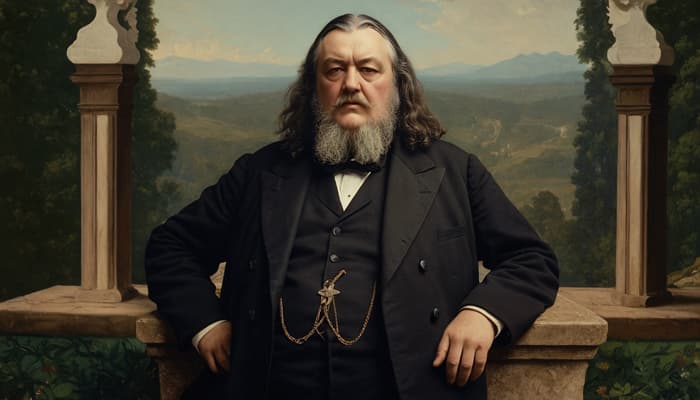Albert Pike ‘THE BLACK POPE’ and the Prophecies of the Three World Wars

Albert Pike ‘THE BLACK POPE’ and the Prophecies of the Three World Wars
In the shadows of history, some figures are shrouded in mystery and controversy. One such figure is Albert Pike, whose alleged prophecies have sparked debates, fears, and endless speculation. Was he a prophet, a mastermind of global conspiracies, or simply misunderstood? Today, we delve into the enigma of Albert Pike, known to some as ‘The Black Pope,’ and his chilling prophecies of three world wars.
Albert Pike was a Confederate General, a lawyer, a poet, and, perhaps most notably, a high-ranking Freemason. Born in 1809, Pike’s life was marked by intellectual pursuit and deep involvement in secret societies. But it’s his role in Freemasonry that has led to the most speculation and controversy.
Revered by some as a great philosopher and condemned by others as a harbinger of doom, Pike’s legacy is as complex as the man himself. He became the Sovereign Grand Commander of the Scottish Rite’s Southern Jurisdiction, a position that solidified his influence within the organization. But it’s what he supposedly wrote that has left an indelible mark on history.
The title ‘The Black Pope’ is often associated with Albert Pike in conspiracy circles, suggesting he was a hidden power within the Catholic Church or Freemasonry. But in reality, this title more accurately refers to the Superior General of the Jesuits, a completely different role. However, Pike’s association with this title speaks volumes about the aura of mystery and fear surrounding his name.
- Pike’s alleged involvement in global conspiracies has been amplified by his supposed prophecies—particularly those predicting three world wars. These prophecies have fueled theories of a secret cabal manipulating world events for centuries.
- Perhaps the most famous and controversial aspect of Pike’s legacy is the letter he allegedly wrote to an Italian politician named Giuseppe Mazzini in 1871. In this letter, Pike is said to have outlined a plan for three world wars, each designed to bring about a New World Order.
- The first world war, according to Pike, would overthrow the Russian Tsar and establish communism. The second would pit fascism against political Zionism, leading to the establishment of Israel and the spread of communism. The third, and final, world war would arise from tensions between the Islamic world and the West, leading to widespread chaos, and ultimately, a new global order.
Critics argue that these so-called prophecies are fabrications, created after the fact to fit historical events. There is no concrete evidence that this letter existed before the 20th century. Yet, the power of this narrative remains compelling to many.
Albert Pike’s name continues to echo through the halls of conspiracy theory. His alleged prophecies have been used to explain global conflicts and to justify the belief in a shadowy group controlling world events. But whether these prophecies are real or not, they reflect a deep-seated fear of unseen powers and the unpredictable nature of history.
Pike himself remains an enigma—a man of many talents and many mysteries. Was he truly a prophet of doom, or simply a misunderstood figure whose writings have been distorted by time and paranoia? The truth may never be fully known.
In the end, Albert Pike’s legacy is a mirror reflecting our deepest fears and uncertainties about power, war, and the future of humanity. Whether as ‘The Black Pope’ or simply Albert Pike, his story continues to captivate and confound, reminding us that history is often as mysterious as it is tragic.